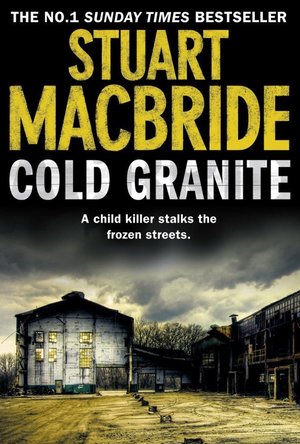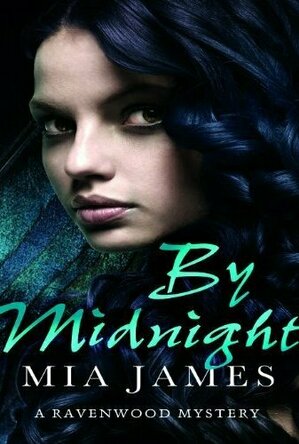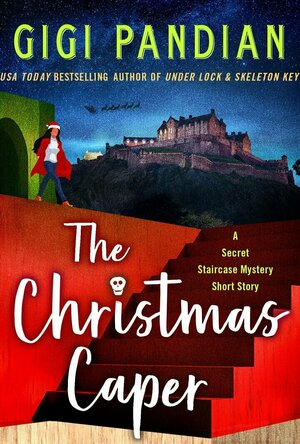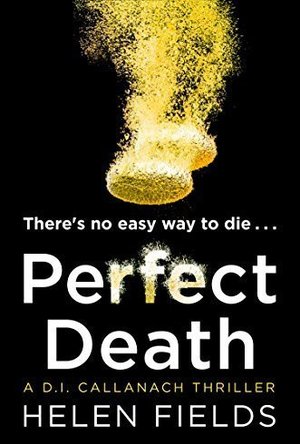
Street Shuffle Europe
Travel and Reference
App
Street Shuffle Europe uses Google Street View technology to help you discover Europe. Simply tap the...

Cold Granite (Logan McRae #1)
Book
Christmas is coming, cold, dark and wet, bringing death with it. DS Logan McRae is having a bad...

By Midnight (Ravenwood Mysteries, #1)
Book
April Dunne is not impressed. She's had to move from Edinburgh to Highgate, London, with her...
Mark @ Carstairs Considers (2488 KP) rated The Christmas Caper in Books
Dec 19, 2022
When I learned about this story, I immediate snagged it to read during December. It was exactly what I expected, a fun, short read. I finished it in under an hour. As a result, the story is a bit straight forward, but that’s not really a complaint. More an observation. While we don’t see all the characters we met in the first book, it was fun catching up with some of them again. The new characters work for the story here. While this does fit between the first and second novels in the series, you don’t have to have read them to enjoy this book. Speaking of enjoying, there are two recipes at the end that sound delicious. If you are looking for a short story to read in December, you’ll be glad you snagged this one.
Ross (3284 KP) rated Perfect Death in Books
Sep 28, 2018
As with the previous two books, we join the story at the start of two independent investigations, which inevitably expand and take up the whole team's efforts (it's almost as if there was no crime in the city before these came along as no other cases seem to be mentioned or worked on!). We have the apparent death by misadventure of a young girl on the hills around Arthur's Seat, and the apparent suicide of former DCI Begbie.
Both cases are interesting and very different, the former being a more typical murder investigation, the latter being more focused on police corruption and the Glasgow gangland (I do enjoy the fact that any nasty gangsters in these Edinburgh-based stories have to be based in Glasgow, almost like they are sponsored by the Edinburgh tourist board, or someone with an anti-East Coast agenda).
While the murder investigation is decent, a number of clangers really spoiled it for me. We have a young man who appears to be poisoning people after having ingratiated themselves into their lives and the lives of their loved ones under different false names. However, as is so often the case in these stories, the killer is made too clever to be caught (at least too clever to be caught in under 300 pages!), and so the slightest mistake or piece of luck is what the investigation hinges on. Here it transpires that, while the killer has used false names in every interaction, in one of them he seems to have for some reason used the name of someone who leads the police directly to his backstory and hence uncovering his real identity. This piece of Batman vs Superman ("Your Mom was called Martha?!") level plot pivot was just so jarring and so out of character for this supposedly clever murderer. And yet without it there was pretty much no way of the murderer being found. For a secret poisoner to then start waving a gun around was also a bit hard to accept.
And also, all characters seem to be very well spoken. We have a young man who grew up in care homes from the age of 5, a Glasgow gangster and his henchmen and numerous bad sorts along the way and all are very well spoken, to the point that none of them have a voice and are just ... there. And, of course everyone refers to the police in the same way as the police refer to themselves - I cannot imagine anyone referring to a policeman as "DI something" or ""your DCI said this". It just totally jars and again comes across as the author simply inserting their voice into the mouths of characters that they could not be bothered to properly consider.
This brings me on to the dialogue gripe. I have always struggled to accept the formality in the way fictional detectives speak to members of the public. I get that interviews etc have to be carried out in a certain way, but at one point DCI Turner is speaking to a 17 year old boy about the death of his mother and she says "I cannot leave someone who might be a danger to themselves without establishing first-hand contact". This just struck me as the author inserting a piece of research into dialogue rather than considering how that point would be addressed in a human conversation. Similarly, at one point a DC refers to one of the victims as "she" and Callanach snapped at her "We use victims' names not pronouns", which just struck me as an odd thing to say, and at several times throughout the book he himself refers to victims with pronouns.
And finally, while there was never a great deal of swearing in the first two books, it was believable swearing. Here we have the occasional use of "frigging" instead of the other "f" word, which I cannot think I have ever heard a Scottish person say, unless singing along to the Sex Pistols sea shanty.
Overall, I give this book 4 stars for the plot, 3 stars for the writing, then averaged out and rounded down for the annoying little things.
A definite step down from the second book, and a more slapdash feel to it.

Anatomy Lectures and MCQs
Medical and Education
App
Learn human anatomy with this app - In this application you will find the following example lectures...
Juliet: A Life in Memories
Book
Juliet Peck, who died at the age of 45, was a courageous foreign news reporter. She was fearless,...
Death and the Moving Image: Ideology, Iconography and I
Book
This book examines the representation of death and dying in mainstream cinema. Death and the Moving...

Extreme Asia: The Rise of Cult Cinema from the Far East
Book
How shrewd marketing engineered the East Asian cult film boom in the UK. Japanese horror. South...

Independent Chinese Documentary: Alternative Visions, Alternative Publics
Book
This book analyses how independent documentaries are forging a new public sphere in today's China....


